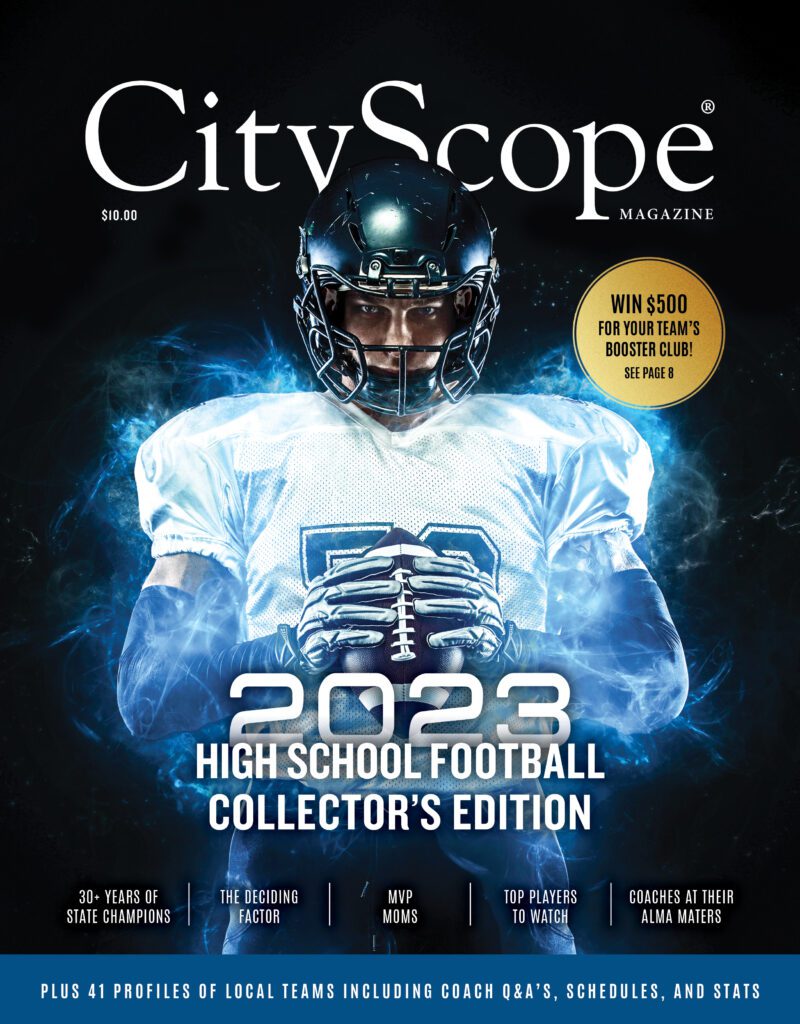By Brian Beise
Andrew Cecil Moore was born in 1902 and picked up the name “Scrappy” while playing as a small, fearless quarterback at the University of Georgia in the 1920s. The name followed him to the University of Chattanooga as an assistant coach in 1927, and in 1931, when he moved up to head coach and athletic director. For more than 40 years, he drew attention to the small university by challenging gridiron giants again and again.

“He loved to see those guys develop,” he says. “He knew a lot about football and wanted to pass the knowledge on to young men he felt could advance in the game. This was something he certainly didn’t brag about, but I felt and I knew that he just loved coaching, and he loved the university as much as anything. He just enjoyed coaching very much. He was a natural at it, and that’s what he was all about.”
Among the things he demonstrated for his players was a willingness to take risks – to reap the rewards of being the underdog. Throughout his 35 years as head coach, he agreed to game after game with the biggest colleges in the South, including Alabama, Auburn, Mississippi, Tennessee, Georgia, Vanderbilt, LSU, Mississippi State, Tulane, and NC State. This pitted his team against incredible odds, testing their mettle and bringing in extra money for the university. While those mismatched bouts account for more than half the losses on Scrappy’s impressive record, there were memorable victories as well.
Scrappy is the only coach in UTC’s history to defeat the University of Knoxville. In 1946 alone, Scrappy’s Mocs defeated both Mississippi and Vanderbilt, and in 1958, they achieved the seemingly impossible, defeating the Tennessee Vols. Soon after that, even Sports Illustrated took note of Scrappy and his underdog Mocs. In the November 1962 issue, Walter Bingham wrote about the four-game match up between the Mocs and the great Ole Miss Rebels. In three consecutive years, Ole Miss won by more than 40 points, never allowing the Mocs to score. Then, in 1962, when the two teams met for the fourth and last time, the Mocs scored a touchdown. Bingham noted the outrage expressed on the Ole Miss side of the field, and described the furious effort the great team put forward in trouncing the Mocs for the remaining time. But he also noted that the Mocs returned home with something to celebrate—a touchdown scored on one of the best teams in college football history.

Over the years, Scrappy’s impressive scoring records and leadership led to his receiving job offers from larger universities and professional teams. Some of these offers he talked about, and some he kept to himself, but his answer was always the same.
“I don’t think that anybody will ever know how many jobs he was offered,” says his son, Scrappy Jr. “He wasn’t the kind of guy to advertise it. My brother and I remember when he was offered a job coaching with LSU. Dad loved New Orleans, but at the dinner table one night he told us about the job, and that he’d like to know the feelings of everybody there. He said ‘If you’d like to move to Louisiana, raise your hand.’ Nobody raised their hand and he said, ‘I agree. We won’t do that.’”
Scrappy’s sons remember more than one incidence of such a decision coming to a family vote, and the result was always in favor of staying in Chattanooga, even when the pros came calling. “Those offers were for many times more than what he was making at the University,” says Scrappy Jr., “but he decided not to do that.”
It seems any conversation about Scrappy inevitably leads to stories about the many memorable players he coached – players like Gene Roberts, who wore his hair much longer than the average college athlete. “His thing was going through the line head first,” recalls Scrappy Jr., “and he grew his hair long to cushion himself in those leather helmets.”
At the time of his retirement, he held the record for longest coaching tenure and tenure at a single school. He retired from coaching in 1967, the same year the American Football Coaches Association named him college coach of the year. His career record is 171-148-13.
He served two more years at the University of Chattanooga as director of athletics. This gave him a total of 43 years with the school. After his death, he was inducted into the College Football Hall of Fame in 1980. The name Scrappy lives on at UTC, not only in memories of the great coach, but also as the name of the university’s mascot, seen at games to this day.
In his 43 years working with UC, football changed greatly, but the principles and methods of Scrappy Moore stayed the same. “Of course he started with the Notre Dame box and had to change to the T-formation,” says Scrappy Jr., “but as far as wanting to see young men develop as football players and men of good character, I don’t think that ever changed. Football changed, but the ways he developed those boys into men of character and men who could master the game of football – that never
changed.”





